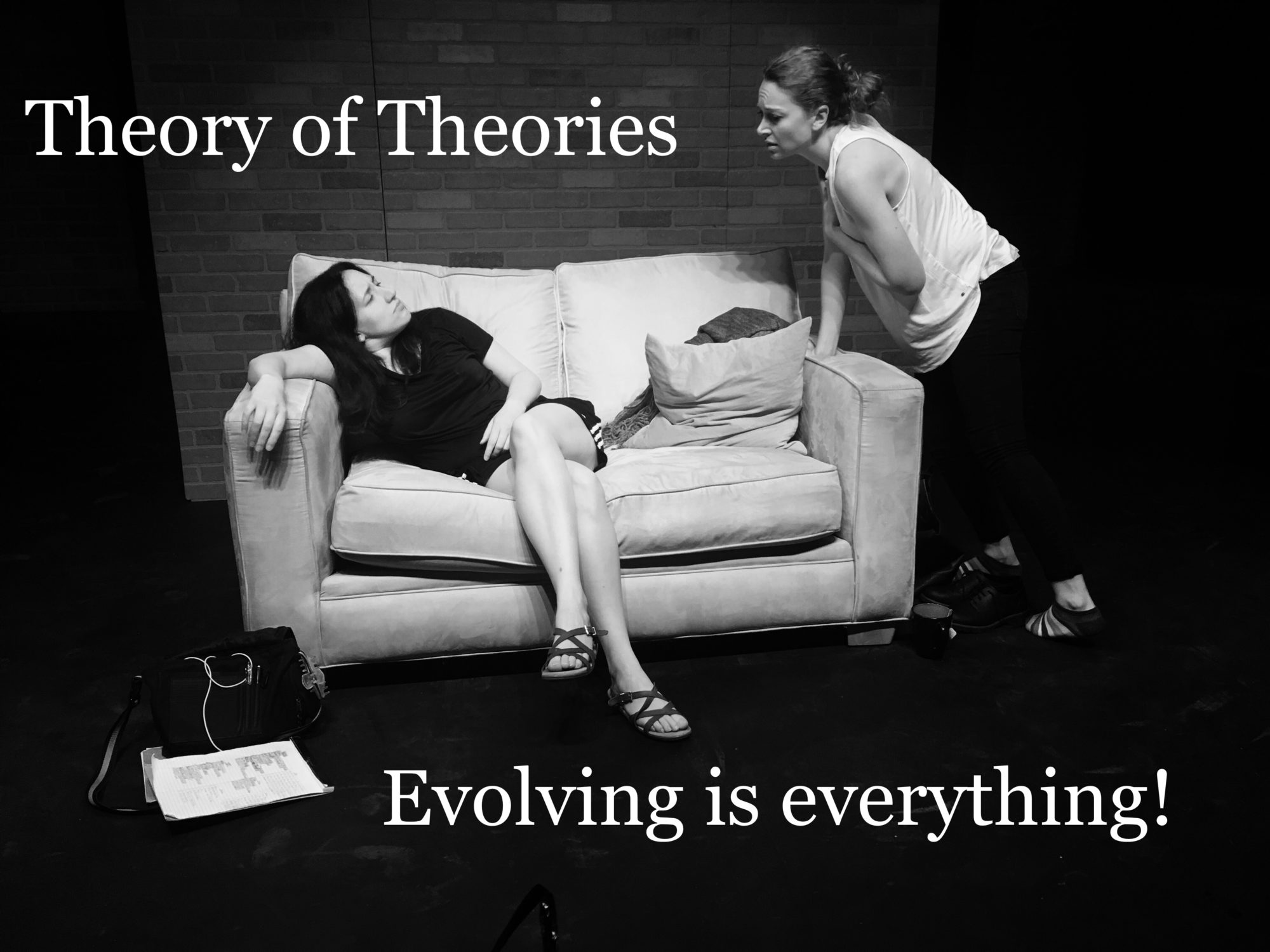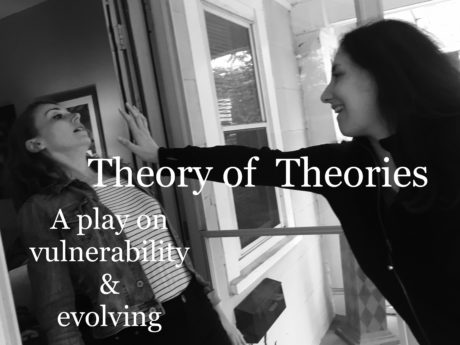An unnamed academic (Cristen Stephansky), in town for a conference, lounges on a sofa taking notes for her presentation. Her host, (Karoline Troger) a similarly unnamed Austrian scholar now teaching in Washington, DC, returns from an errand bringing a bagel. Their conversation begins as the sort of freewheeling that can be a joy to eavesdrop upon. What unfolds is not a staged debate between two opposed positions or a Socratic inquiry into the truth or the limits of knowledge, but a playful exploration of idea after idea.

The flow is frenetic as they apply ideas about objectivity, subjectivity, and theory to pop-culture (is the 1993 Seinfeld episode “The Implant” sexist as some allege? How does one reconcile a love of classic Hollywood romantic comedies with feminist concerns regarding violence against women?) and current politics, discussing the proper response to the coarsening of the political sphere in the era of Trump, #MeToo movement, and the March For Our Lives movement against gun violence.
It may take half the play before the dramatic center becomes clear, but the path is the sort of verbal jazz that exists between two players who are clearly simpatico. The host has her titular “theory of theories” which can be summed up as “in a world of theories each one has some validity to someone.”
It’s not much of a theory from the perspective of the sciences, but it is a working hypothesis that suggests we consider how much our understanding of the world is based upon not just our cultural and societal concerns but our individual needs and outlooks – essentially the hermeneutic circle that implicates us in our understanding.
Some may dismiss the host’s particular articulation as overly relativist, but the guest suggests her own corollary: that it is not enough to tolerate those who are different but that such a viewpoint gives us the ethical demand to genuinely befriend those who are different, to listen to and understand their viewpoints – essentially arguing that we need to be “less politically correct” and “more emotionally correct.”
These heady matters can lead to matters of the heart. The host is unlucky in love, still reeling from at least one breakup, as well as an infatuation with one date who didn’t want a second date. To what extent are her theories getting in her way? Is perseverating on past breakups the sort of vulnerability that shows that one is ready and open to love? Can newly found romantic feelings blind one to how one’s beloved is fundamentally different?

In the free flow of ideas and freely given confessions, one of this duo is falling in love (this critic shall withhold both who and whom.) The professional ethics of love in an educational environment are well known (even if some break them) but is there an ethics of love between houseguest and host?
Writer and director Sean Surla has created an intellectually and emotionally engaging story in this two-hander. There’s neither an earth-shaking inciting incident outside the apartment, nor a contrived clash of irreconcilable world-views, nor a series of power plays and reversals of fortune – just two people engaging honestly – and there is real drama to be found there.
What Surla has accomplished is representing that emotional rush that one can feel when one finds one’s ideas, the speed of one’s thoughts, and one’s enthusiasms so well mirrored in someone else; the anxiety of whether or not to share one’s feelings; and what unrequited love affects the person who is the object of the other’s affection. Her script explores these clever theatrical and meta-theatrical devices – dreams, the branching timelines of the multiverse, and empathic mirroring exercises commonly used both in interpersonal therapy and as an acting exercise.
Theory of Theories is a smart script, but without smart actors, a satisfying performance would be impossible. Thankfully Troger and Stephansky are perfectly cast in their respective roles. Troger portrays the anxious intensity of someone who is constantly aware that her role as a university professor provides formal structures that make her compulsion to share her every thought safe.
Stephansky plays the guest as a more relaxed and engaged observer of both her situation and her inner life. Most importantly both performers also skillfully navigate the subtle shifts in emotion and the confusions, not just as the story moves forward in time, but shifts sidewise into other realities.
Running time: One hour and 10 minutes, with no intermission.
Theory of Theories plays August 3 through August 11, 2018, at DC Arts Center – 2438 18th Street NW, in Washington, DC. Tickets available at the venue or order online.




